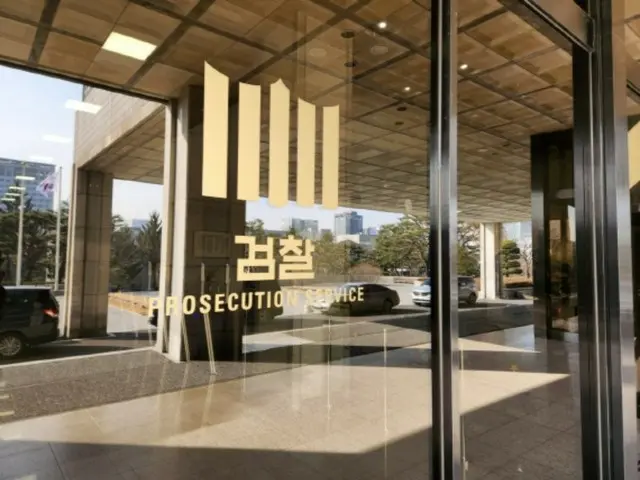Cho Seung-rye, chief spokesman for the Democratic Party, criticized the prosecution for "betraying the people and putting not only the law and order but also Korea and its people in danger." The five opposition parties, including the Democratic Party, have filed a complaint against Prosecutor General Shim Woo-jung.
The government has called for Yoon's resignation and vowed to impeach him if he refuses. Yoon was arrested and indicted in January this year on charges of instigating a civil war following his declaration of emergency martial law in December last year.
Martial law is a type of state of emergency defined by the Korean Constitution. It is issued by the president in times of war or other emergency situations, when it is necessary for military purposes, or to maintain public order.
However, martial law is lifted only if a majority of the members of the National Assembly request it, and the president must comply with this request.
In favor of lifting the state of emergency, Yoon lifted it in just six hours. The opposition parties, including the Democratic Party of Korea, have accused Yoon of "attempting to suspend the constitutional order and committing an insurrection that seeks to seize permanent power," among other things.
The government submitted a motion to impeach Yoon to the National Assembly, pointing out that he violated the Constitution. The motion was passed by 204 votes in favor and 85 votes against on the 14th of last month. Yoon was subsequently suspended from his duties and is currently serving as the head of the National Assembly.
Deputy Prime Minister for Economic Affairs and Minister of Strategy and Finance Jae Sang-mok is acting as president. The declaration of emergency law has caused great political and social unrest, and the opposition party has accused Yoon of instigating sedition.
The Public Prosecutor's Office and the police jointly investigated the case, and the headquarters arrested Yoon on January 15th. This was the first time in South Korea's constitutional history that a sitting president had been arrested.
Yoon was arrested on suspicion of masterminding a civil war in the Ming Dynasty. The prosecution indicted him on the 26th, but Yoon's defense argued that the period during which he could be detained had expired, making the indictment illegal.
The law states that the period during which the investigative authorities' documents are deposited with the court for the arrest warrant review does not count toward the detention period. The prosecution calculated this period in days, but the Seoul Central District Court said it was calculated in hours.
On the 7th of this month, the court ruled that it was appropriate to calculate the time in hours. The court ruled in favor of Yoon's defense's request to cancel his detention. If calculated in hours, Yoon's detention would have expired on January 25th, but the prosecution said it would have ended on the 26th.
The district court also pointed out that the scope of the investigation by the Public Prosecutor's Office, which arrested Yoon, did not include the crime of treason. The prosecution could have appealed immediately, but they decided to respect the court's decision.
The court said it had taken into consideration the purpose of the court's decision and the warrant principle set out in the Constitution. Yoon was released on the 8th. Yoon walked out of the detention center.
He responded by waving and bowing to his supporters. He also made a statement through his legal team saying, "I am grateful to the Seoul Central District Court for their courage and determination in exposing the injustice."
"I would like to express my deep gratitude to the many people who supported me and to our future generations," he said to his supporters.
Yoon, who was released and returned to the presidential residence, will now face his criminal trial from home.
An impeachment trial is also underway against Yoon, with the Constitutional Court expected to make a decision on whether to remove him from office as soon as this month.
Regarding Yoon's release, Kwon Seong-dong, floor leader of the ruling party People Power Party, said, "It has been 52 days since he was illegally detained.
The opposition Democratic Party of Korea, on the other hand, protested, saying, "What do you mean by releasing the mastermind of a civil war?" The party's floor leader Park Chan-dae said of Shim, "We will appeal immediately."
The party and five other opposition parties are calling for the resignation of Prosecutor General Shim Woo-jung.
The reason why the prosecution did not challenge the court's decision is believed to be due to a Constitutional Court ruling in 2012 that ruled that an immediate appeal against a decision to suspend the execution of detention was unconstitutional.
Some have speculated that the prosecution felt burdened by the decision to file an immediate appeal against the ruling that had been found unconstitutional. However, the prosecution said it "cannot accept" the court's decision.
He also instructed the head of the special investigation headquarters of the National Police Agency to take every possible measure to maintain the prosecution without wavering, as this is a matter of national importance.
"I don't believe this is grounds for resignation or impeachment," he said.
2025/03/12 13:50 KST
Copyrights(C)wowkorea.jp 5

